BCAA vs Creatine: Which Supplement Is Better?
Are you considering BCAA vs Creatine and wondering which supplement is better?
There are plenty of questions you may have about these 2 different supplements. Is BCAA and creatine the same thing? Is creatine a BCAA? Do BCAAs have Creatine in them? Keep reading to have all these questions and more answered down below!
While these 2 supplements are commonly lumped together, they are actually very different with unique effects and use cases. In this article, we’ll be answering all your questions about these supplements, including what they are, who should be taking them, and how useful they can be.
Keep reading to better understand the difference between BCAA and Creatine, and whether or not you should be taking creatine or amino acids.
The differences between BCAA vs Creatine lie largely in their effects. Creatine is a well-researched supplement for improving high-intensity exercise performance, and will benefit most athletes. While BCAAs may help some build muscle and recovery, most people get plenty of BCAAs in their diet already, making them largely unnecessary.
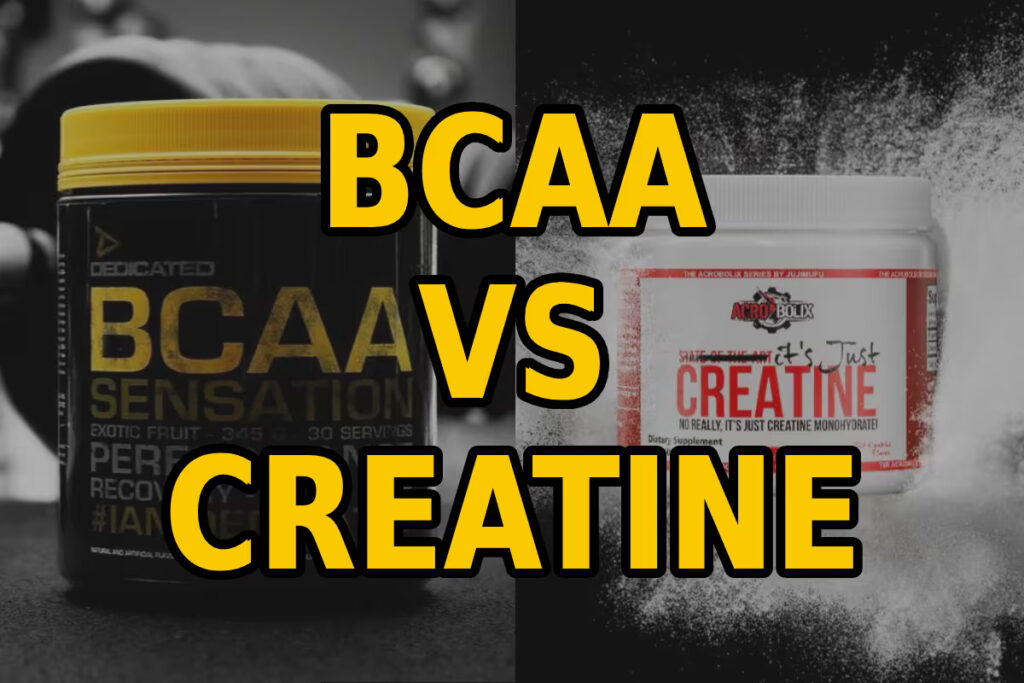
What Is BCAA?
There are 20 total amino acids, with 11 being synthesized by the body. This leaves 9 that need to be found through diet. Amino acids act as the building blocks of protein, and a food that contains all 9 essential amino acids is considered a complete protein.
BCAAs or Branched-Chain Amino Acids, make up 3 of the 9 essential amino acids. BCAAs get their name because of their chemical structure, which gives them a branched appearance. The 3 BCAAs are Leucine, Isoleucine, and Valine.
So, what’s so special about BCAAs instead of the other 6 EAAs? BCAAs are especially important because of their role in making up muscle tissue, and fueling workouts. BCAAs make up around 35% of all muscle tissue, and around 3-18% of all workout energy is provided from BCAAs as well. It’s thought that adequate BCAA intake will help with building muscle, and reducing fatigue.
Does this mean everybody should be taking BCAAs as a supplement? Not exactly, because most people eating a protein-rich diet get more than enough BCAAs through food alone. For reference, people need around 9-12g of BCAAs everyday, and you can easily get this amount through 2 servings of chicken, beef, salmon, or even peanuts.
It’s worth noting that vegans and vegetarians are much more likely to be deficient in protein/BCAAs than those who eat meat. However, protein deficient people would be better suited getting more protein in through their diet instead of supplementing with BCAAs. However, BCAA supplementation can be a convenient way to get these amino acids reliably everyday.

What Is Creatine?
Creatine is an amino acid derivative produced by arginine and glycine, which is converted into phosphocreatine within the body. Phosphocreatine is then used to regenerate ATP in muscle cells, which is their primary source of energy. As you may expect, creatine content in the body plays a major role in athletic performance because of this.
Most people only keep their creatine stores about ¾ of the way full, but these stores can be filled up all the way with supplementation. This is usually referred to as “saturation”. When muscles are saturated with creatine, it appears to significantly improve high-intensity exercise performance through delaying fatigue. It also appears to provide a whole host of other benefits, including reducing injury risk, improving rehabilitation, and helping exercise recovery.
Creatine is not an essential amino acid, meaning it is partially produced within our body. With this being said, creatine stores in the body can be increased, or saturated, through diet and supplementation. To maximize the ergogenic effects of creatine, the recommended supplement dose is 3-5g daily.
Creatine can be found through diet, however, it is much more difficult to saturate creatine stores in the body through diet alone. Most meat contains around 1.4-2.3g of creatine per pound. This means you’d need to be eating 2-3 pounds of meat a day to hit the recommended dose of 3-5g!
Because it is difficult to hit high doses of creatine through food alone, and the effects of creatine saturation are significant for performance and recovery, most people will benefit greatly from creatine supplementation.
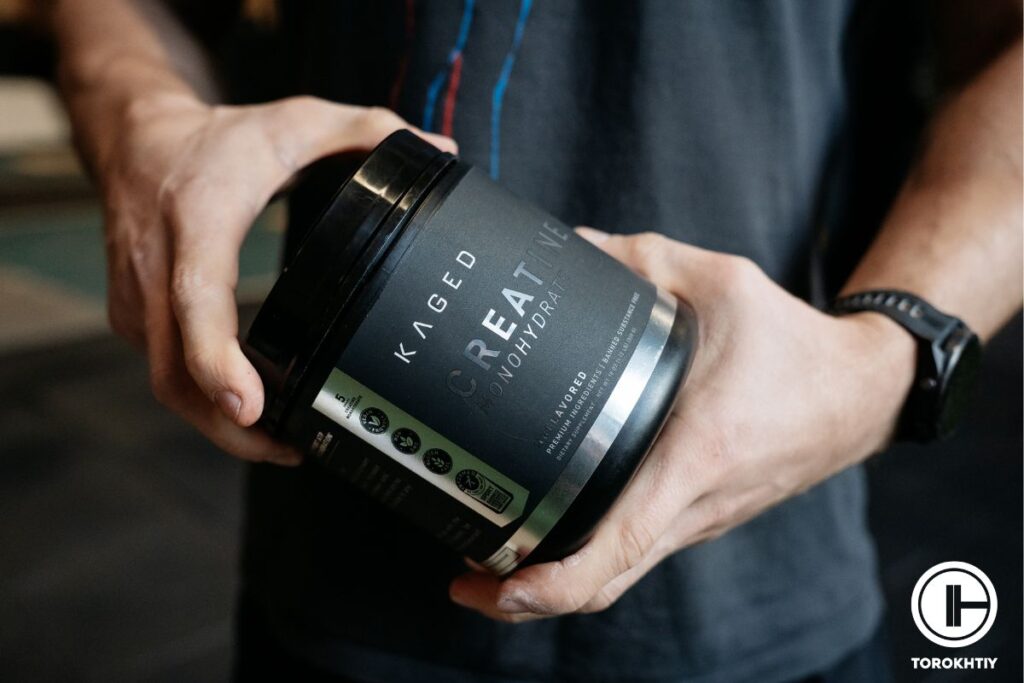
BCAA vs Creatine
There are 3 main characteristics concerning the question of creatine vs BCAAs. These are price, training effects, and overall use cases. Let’s see how these 2 supplements compare on these metrics.
| Criterias | BCAAs | Creatine |
|---|---|---|
| Price | Usually less than $1 per serving | Usually less than $1 per serving, but can go higher |
| Training Effects | Will not have significant effects on those getting adequate protein intake | Has been shown to improve high-intensity exercise performance and recovery, as well as having many other health benefits. |
| Use Cases | Most useful for vegans/vegetarians, or protein deficient people. | Will benefit nearly all athletes. |
1. Price
To compare price, we’ll be looking at one brand’s BCAA and Creatine to see how the 2 products compare. Keep in mind this isn’t representative of every brand’s pricing, but it should give you a good idea of the general difference between the 2 product’s pricing.
To do this, we’ll be looking at Jacked Factory’s Creatine and BCAA supplements. Their BCAA comes out to around $0.83 per serving, while their Creatine is only around $0.41 per serving. As you can see, their BCAAs are more than twice as expensive as their Creatine.
Again, while this isn’t representative of all brands and products, on average, BCAAs are significantly more expensive than a basic creatine supplement.
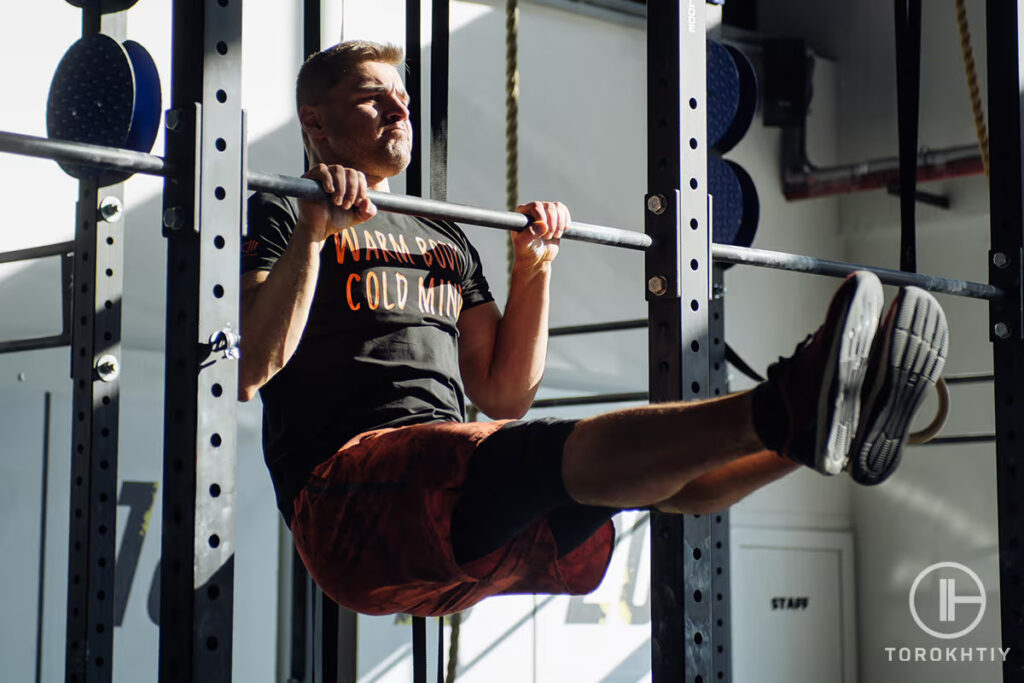
2. Training Effects
While BCAAs are incredibly valuable in both building muscle, and providing energy for a workout, most people already get enough BCAAs in their diet, rendering supplementation unnecessary. The role BCAAs play in training are huge – building muscle, reducing fatigue, etc. – but supplementation likely won’t make a major difference for the vast majority of athletes.
Creatine, on the other hand, is much more difficult to get through diet alone, meaning supplementation is much more important. The effects of creatine saturation not only include better high-intensity exercise performance, but improved recovery, and injury prevention as well.
Overall, both BCAAs and Creatine have a long list of positive effects on training, most athletes are just already getting all the benefits they can from BCAAs without any supplementation. When it comes to vegetarians, they can benefit from both supplements because their diets usually don’t contain sufficient amounts of both creatine and BCAA.
3. Use Cases
As mentioned above, most people are already getting more than enough BCAAs in through their diet alone. Creatine, on the other hand, is much more difficult to get in high amounts through diet. Therefore, creatine will be significantly more useful to the average person.
While vegans and vegetarians are more likely to be protein/BCAA deficient, they would be better off incorporating more protein rich foods (peanuts, red lentils, tofu, etc.) into their diet instead of resorting to BCAAs. With that being said, BCAAs are a convenient way to reliably get BCAAs everyday.
Overall, while BCAA supplementation may be beneficial to some, creatine will provide significantly more benefits to the vast majority of athletes.
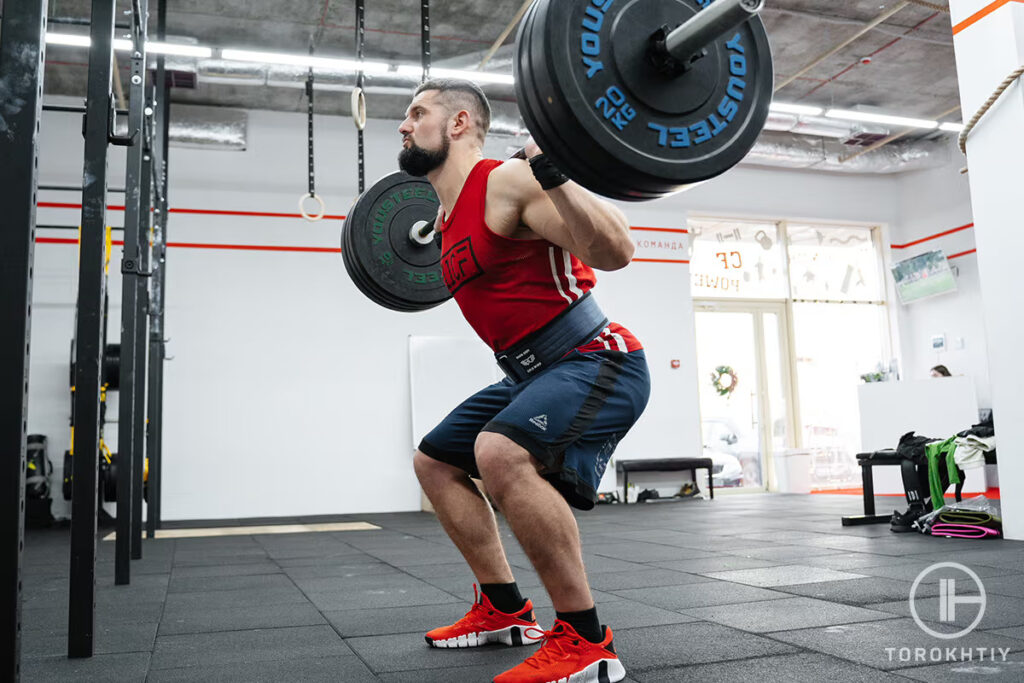
BCAA vs Creatine: Summary
While BCAA and Creatine may seem like similar supplements, they are actually very different.
BCAAs play a valuable role in muscle growth and reducing fatigue, but most people already get more than enough BCAAs for these effects through diet alone.
Creatine improves high-intensity exercise performance, improves recovery, and reduces the risk of injury. It is much more difficult to get these benefits through dietary creatine intake alone, so most athletes will benefit greatly from 3-5g of creatine daily. This is all not to mention it is much cheaper on average than BCAAs.
Overall, when considering creatine vs amino acids, creatine is the far superior supplement for the vast majority of athletes looking to improve their performance.
1. Pros/Cons of BCAA
Positives:
Could be better:
2. Pros/Cons of Creatine
Positives:
Could be better:

BCAA vs Creatine: When to Use Each?
As mentioned, most people do not need to supplement with BCAAs if they are eating a diet rich in proteins. While vegans and vegetarians are more likely to benefit from BCAA supplementation, they would likely benefit more from incorporating more BCAA-rich foods in their diet. Overall, very few people will genuinely benefit from BCAA supplementation.
Creatine, on the other hand, will be beneficial to almost all athletes. It’s quite difficult to get high amounts of creatine through diet alone, making supplementation a convenient way to get the recommended daily dose of 3-5g. With creatine having a long list of benefits related to athletic performance, most athletes should absolutely be supplementing with creatine.
Creatine And BCAA: What We Recomend
1. Best Creatine – Transparent Labs Creatine HMB
If you’re looking for an all-around high-quality creatine supplement, we recommend Creatine HMB from Transparent Labs. Keep in mind this is a fairly deluxe creatine supplement, which is reflected in its price. If you’re looking for a more budget friendly pick, there are plenty of simpler, more affordable options available.
At 5g of creatine monohydrate per serving, you can be sure you’re getting all the creatine you need for solid ergogenic effects in each scoop. Some additional ingredients in this supplement include HMB and Vitamin D.
If you’re unfamiliar with HMB, similar to creatine, it has been shown to increase strength and lean body mass. Vitamin D has also been shown to have benefits for bone health, muscle strength, and disease prevention.
Each serving of Creatine HMB contains 1.5g of HMB, and 12.5mg of Vitamin D (60% of the daily recommended value).
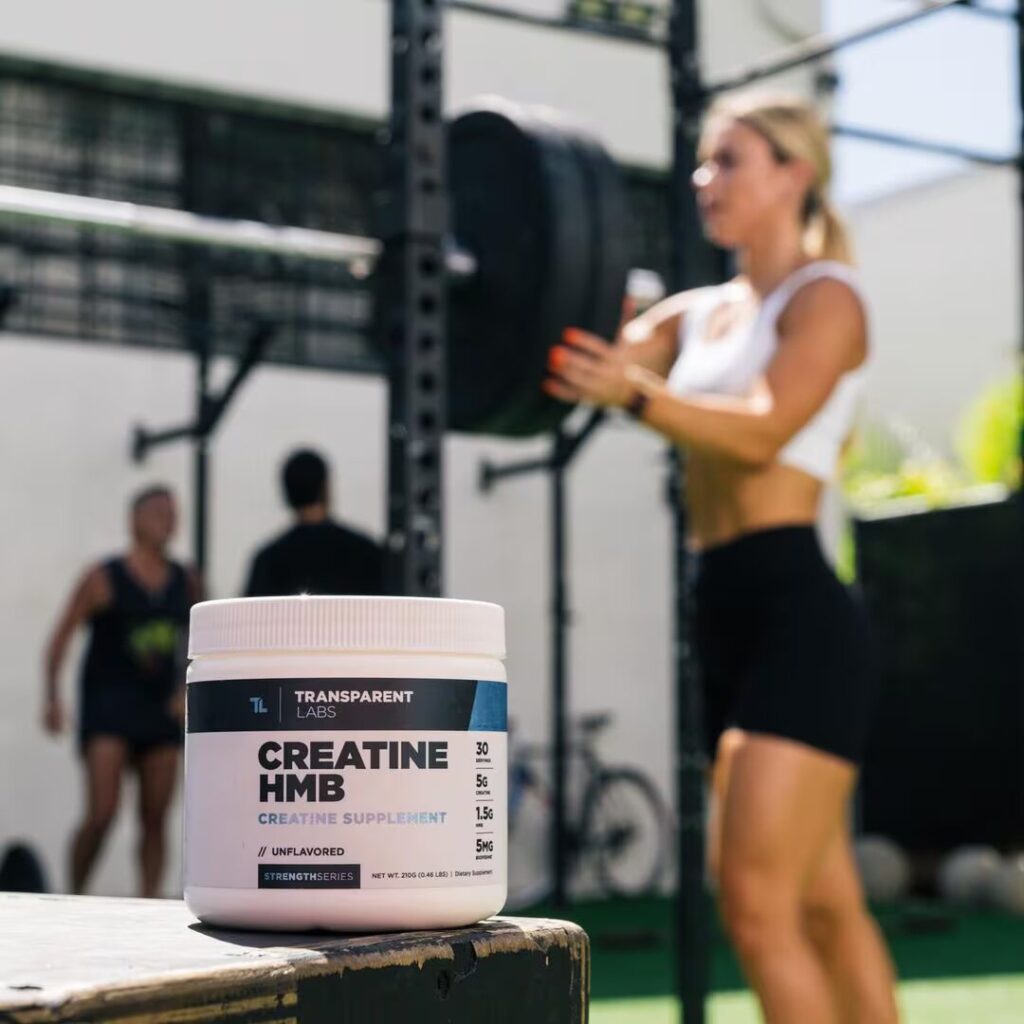
While most creatine supplements only come in an unflavored variety, Creatine HMB has 11 unique flavors to choose from. These include Strawberry Lemonade, Hawaiian Splash, and Sour Grape. Also, like all of Transparent Labs products, their Creatine contains no artificial ingredients whatsoever.
Of course, because this is a premium creatine supplement, it does come with a fairly high price tag. Each serving of Creatine HMB will cost around $1.50. While this is significantly more expensive than many other creatine supplements on the market, you can be confident you’re getting an exceptionally high-quality product for the price.
2. Best BCAA – Cellucor XTEND Original BCAA
If you’re interested in trying out a BCAA supplement, our top pick is XTEND from Cellucor. As we’ve mentioned, most people will not greatly benefit from the use of a BCAA supplement, but this is still a high-quality product for what it is.
You’ll be getting 7g of BCAAs in each serving, which is very close to the recommended daily amount of 9-12g. If you’re concerned about not quite hitting the daily recommended amount, this supplement could be a great way to get some peace of mind. XTEND also contains a blend of essential electrolytes, making it useful as a hydrating intra-workout beverage.
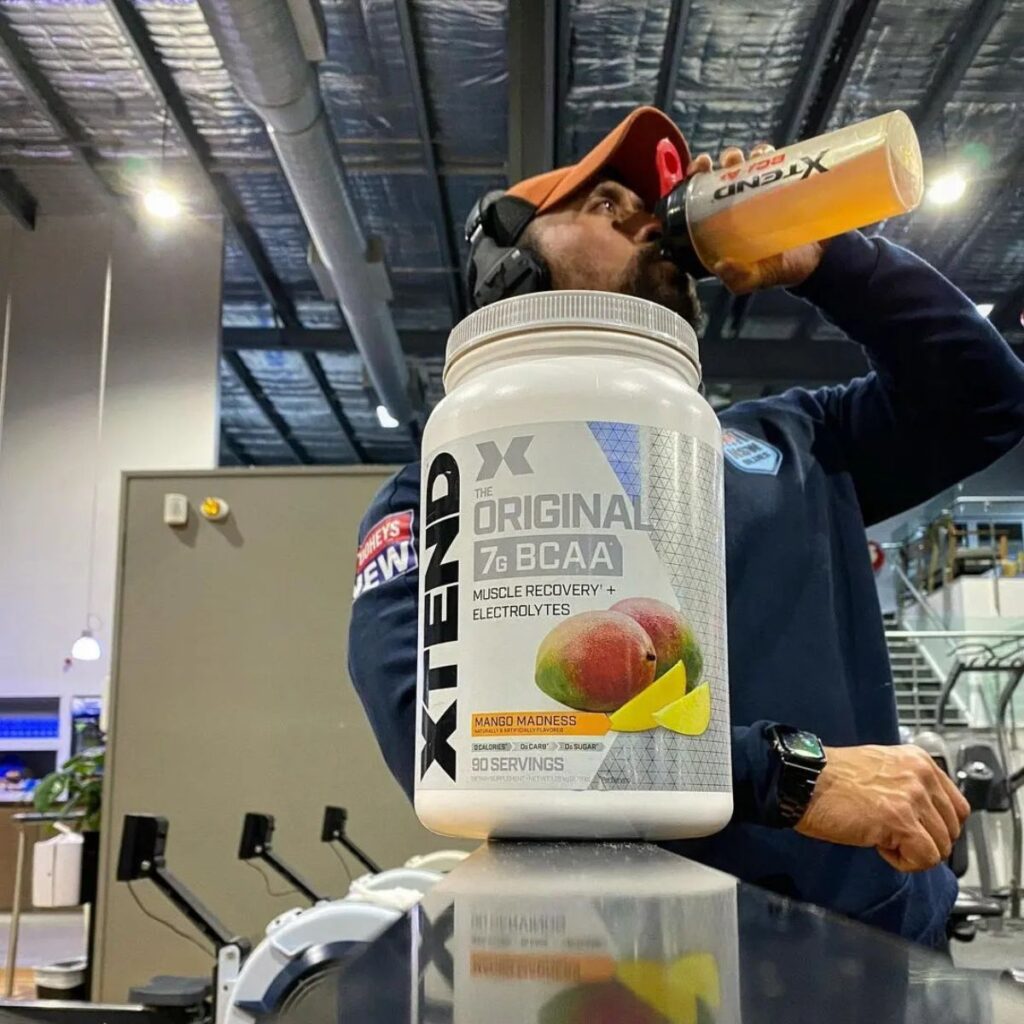
There’s a very solid 13 flavors to choose from, offering excellent variety. Cellucor does not readily offer the nutritional information for XTEND on their product page, so it’s difficult to say if it’s formulated with artificial ingredients or not. However, based on their other products, it is more than likely that it does contain some artificial sweeteners and dyes.
Cellucor’s BCAAs come in at around $0.72 per serving, making them a fairly affordable option. However, as we’ve covered in this article, your money is likely better spent on a high-quality creatine supplement instead.
FAQ
Should I Take Creatine And BCAA?
Most athletes will benefit greatly from supplementing with Creatine, however there are very few people who will benefit from BCAAs. Because most people get more than enough BCAAs in through their diet, supplementation is largely unnecessary. Creatine is much more difficult to get through food, making supplementation generally more beneficial.
Does BCAA Build Muscle Faster?
While BCAAs play a crucial role in building muscle, and fueling workouts, most people get plenty of BCAAs in through their diet, making supplementation unnecessary. Most people will not experience any difference in muscle growth if they take a BCAA supplement.
Which Is Better, Amino Acids Or Creatine?
Creatine will likely have a much more significant effect on your training than BCAAs. Overall, nearly all athletes will experience a noticeable difference in their performance from creatine, while the same cannot be said for BCAAs.
Can You Take BCAA And Creatine?
Yes. While, as we’ve mentioned, there likely isn’t much benefit to taking BCAAs, if you’re inclined to take them alongside creatine, there is no risk associated with pairing creatine and amino acids together.
Conclusion
We hope this article was able to clear up some of your questions regarding the difference between creatine and BCAAs! On the whole, creatine is a much more universally beneficial supplement than BCAAs because of its impact on training performance and recovery. Most people get plenty of BCAAs in through their diet, rendering supplementation useless. Even if someone doesn’t get enough BCAAs, they are better off eating more protein-rich foods instead of taking BCAAs. Our top pick for a high-quality creatine supplement is Transparent Labs Creatine HMB, and if you’re still interested in BCAAs, our top pick is Cellucor XTEND Original BCAA.
Let us know what your thoughts on Creatine and BCAAs are in the comments below!
Also read:
- Creatine Pills vs Powder
- Best Things to Mix Creatine With
- Best Creatine Sources
- Best Creatine for Athletes
- Best Creatine for Teens
- What Happens When You Stop Taking Creatine
- Does Creatine Help You Lose Weight
- Should You Take Creatine Before or After a Workout
- How Much Creatine Should I Take
- Best Creatine Supplements for Women
References:
- National Academies Press (US), “Recommended Dietary Allowances: 10th Edition,” NCBI, https://www.ncbi.nlm.nih.gov/books/NBK234922/ (1989)
- Starkie Sowers, “A Primer On Branched Chain Amino Acids,” HUHS, https://www.huhs.edu/literature/BCAA.pdf (2009)
- BCAAs for Women: What You Need to Know, Lionel, https://blog.lionel.edu/bcaas-for-women
- Shih-Hao Wu, “Creatine Supplementation for Muscle Growth” NCBI, https://www.ncbi.nlm.nih.gov/pmc/articles/PMC8949037/ (Accessed Mar 16, 2022)
- Richard B, “Creatine: State of the Science at the Millennium,” creightonprep, bit.ly/45tYeN0 (Feb 2000)
- Richard B Kreider, “International Society of Sports Nutrition position stand” NCBI, https://pubmed.ncbi.nlm.nih.gov/28615996/ (Accessed Jun 13, 2017)
- Jasmine S Thomson, “Effects of nine weeks of beta-hydroxy-beta- methylbutyrate supplementation” NCBI, https://pubmed.ncbi.nlm.nih.gov/19387396/ (Accessed May 23, 2009)
- Vitamin D, HSPH, https://www.hsph.harvard.edu/nutritionsource/vitamin-d/ (March 2023)
Why Trust Us?
With over 20 years in Olympic Weightlifting, our team does its best to provide the audience with ultimate support and meet the needs and requirements of advanced athletes and professional lifters, as well as people who strive to open new opportunities and develop their physical capabilities with us.
By trusting the recommendations of our certified experts in coaching, nutrition, dietology, and sports training programming, as well as scientific consultants, and physiotherapists, we provide you with thorough, well-considered, and scientifically proven content. All the information given in the articles concerning workout programming, separate exercises, and athletic performance, in general, is based on verified data. We ensure that you can rely on our professionals’ pieces of advice and recommendations that can be treated as personalized ones which will benefit you and fully meet your needs.
The product testing process is described in more detail here
Author: Jacek Szymanowski
Certified Nutritionist,
M.Sc.Eng. Biotechnology
Performance Architect,
Strength and Conditioning Specialist
With over 30 years of fighting experience, specialization in nutrition coaching for athletes, and expertise in metabolic health and dietary strategies, Jacek offers a comprehensive approach to optimizing your performance and well-being. Backed by a Master of Science degree in Biotechnology, Jacek remains at the forefront of scientific advancements, ensuring that his coaching is always evidence-based and up-to-date.

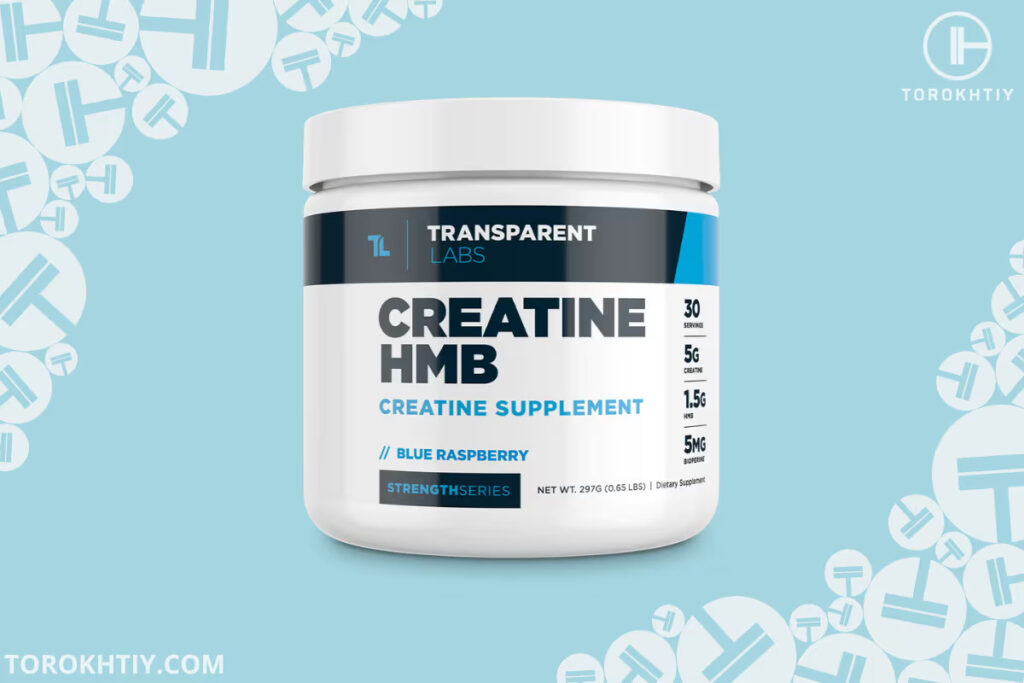
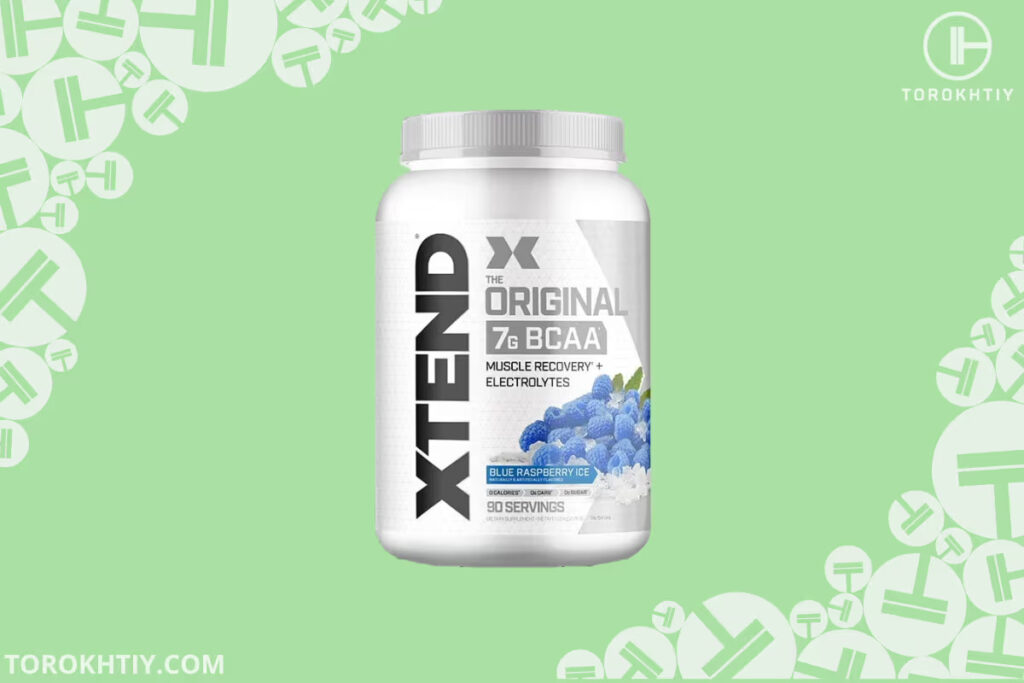






![24 Home Gym Ideas On A Budget in [Year]](https://torwod.com/wp-content/uploads/2024/02/home-gym-ideas-torokhtiy-768x512.jpg)